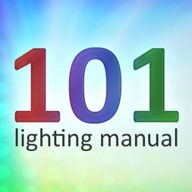As a number of people in chat are aware I have under production a 60 channel DC DMX dimmer pcb. This board is still a few weeks away from prototype and a good way before it goes into production. At this very early stage I'm thinking that it may be released at the Melbourne mini. As well as having 60 channels it is to have a number of features that aren't available on any controller available at the moment. A few of the features are on the Ray Wu 27 channel board and on David_AVC DC48 but my pcb has features out the kazoo. The following is a list of them so far.
At the moment I'm getting reasonably close to finalising the pcb layout subject to working out what fuseholder will get me 30A, what terminal block will handle 30A and a source of 5V DC-DC converters that is both cheap and reliable. I would also like to find a box similar to the Masters $10 one mentioned in these forums or the LOR PC plastic boxes so that I can offer the boards boxed and the mounting standoffs will match a specific box. The pcb is looking at being approximately 225mm x 125mm. On a somewhat lesser note I'm also trying to think of a nice catchy short name to call this board
- 60 channels
- 4 voltage zones
- 4 power inputs (1 per zone)
- 4 fuses (1 per zone)
- 3 amp per output with a maximum of 30A per zone. This is limited by the fuse and power input terminal sizes
- USB thumbdrive firmware updates
- dipswtch selectable start address
- test mode with cycling between outputs and fades across outputs
- signal loss fade to zero
- jumper to terminate DMX signal
- jumperable selection of ESTA or LOR wiring of RJ45 plugs. The 2 plugs can be ESTA, LOR or 1 of each. No need for adaptors.
- full 5V to 35V operating range (this may be extended to 40V)
- jumper selectable output voltage. Each of the 4 zones has a jumper bank to allow the output to be set to a voltage of the same or lower than the input voltage. At the moment the setting will be 5V, 12V, 24V, 27V and 100% if no jumper is installed. There is monitoring of the supply voltage and maths done on the micro so that it is possible for instance to run the whole board off 27V and have a 5V, 12V, 24V and a 27V bank to allow for different LED/light types
At the moment I'm getting reasonably close to finalising the pcb layout subject to working out what fuseholder will get me 30A, what terminal block will handle 30A and a source of 5V DC-DC converters that is both cheap and reliable. I would also like to find a box similar to the Masters $10 one mentioned in these forums or the LOR PC plastic boxes so that I can offer the boards boxed and the mounting standoffs will match a specific box. The pcb is looking at being approximately 225mm x 125mm. On a somewhat lesser note I'm also trying to think of a nice catchy short name to call this board


